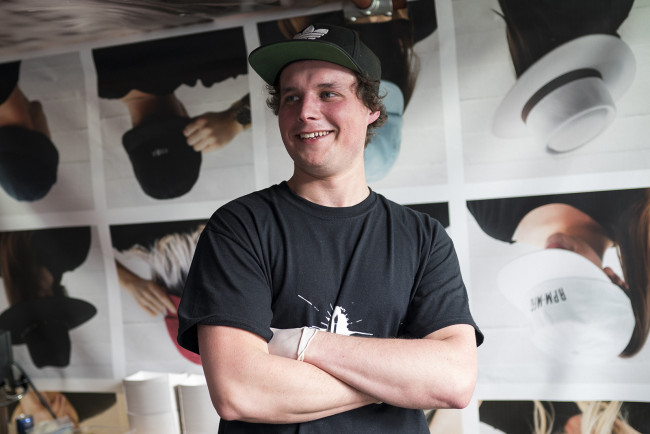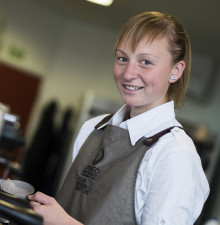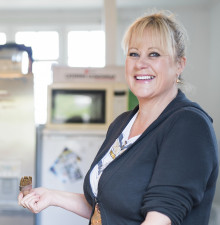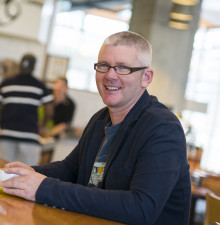Focus on food for the people
Dylan Malcolm regards kai as far more than a source of sustenance.

There is a strong Māori population in the Far North and that also gave me another angle on food. For example, we would eat every part of a fish—the eyes, the brain, all of it. That's why I like studying at Otago Polytechnic’s Food Design Institute. We are taught to approach food differently.
Dylan Malcolm is not interested in what others might call “fancy food”.
Instead, the Otago Polytechnic third-year Bachelor of Culinary Arts learner focuses on producing “food for the people”.
Having worked in fine-dining restaurants where he did not get to relate to customers, he prefers the dynamic of “street food”, which gives him the opportunity to talk to people about the inspiration behind his creations as well as listen to their opinions.
Dylan relished the chance to soak up others’ ideas and energy at the Global Forum on Entrepreneurship and Innovation at Humber, Toronto, in late May.
He and third-year Bachelor of Design (Communication) student Kennedy Barnes were involved in a workshop, “Social Enterprise through Design Thinking”,whichbrought together students from around the world to identify, define, prototype and test a solution to a critical challenge common to communities across the globe.
Dylan, who created and sold seafood-based lunches from Otago Polytechnic’s food truck to raise some spending money for his Canadian sojourn, loves his kai moana.
Raised in the Far North, and with a chef mother and a Maori stepdad, Dylan says he has always regarded food as far more than a source of sustenance.
“There is a strong Māori population in the Far North and that also gave me another angle on food. For example, we would eat every part of a fish — the eyes, the brain, all of it.
“That why I like studying at Otago Polytechnic’s Food Design Institute. We are taught to approach food differently.
Food, especially some of the produce, is extremely expensive in this country. Therefore, a key question is, how do we add value to a product that’s not cheap – so the customer is prepared to pay extra for it.
“Sometimes that comes back to creating an environment or experience around food.”




